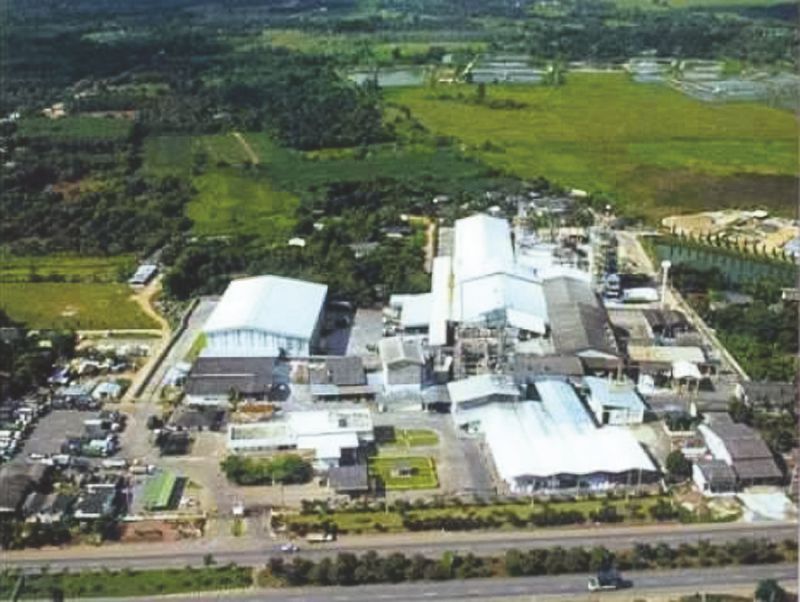Ingredion is a global ingredient solutions company making sweeteners, starches and unique ingredients from plant sources such as corn, tapioca, rice, sago and potato. It supplies a range of specialty products and solutions for the wet-end, spray applications, size press, and online/offline coatings of the papermaking process.

When Ingredion introduced the first amphoteric starch in 1965, it revolutionized the paper industry. The company continues to innovate with a broad range of papermaking starches, made from a variety of bases. Ingredion’s tapioca based wet-end starches have become popular among papermakers for helping improve the dry strength, retention and drainage. Ingredion’s comprehensive, new-generation wet-end solutions help mill improve dry strength of paper and board in a closed water loop system where traditional cationic and amphoteric solutions are failing besides aiding in producing papers easier to print on or more resistant to oil and grease, among other solutions.
Paper Mart recently interviewed Mr. Carl Andrew Paul, Busine
ss Director – Industrial Solutions (Asia Pacific) to know how Ingredion helps the paper industry through its nature-based products. Excerpts:
Paper Mart: Please introduce Ingredion to our readers. How is the company helping the paper industry in improving the quality of the paper grades?
Carl Andrew Paul: Ingredion is a leading global solutions company headquartered in the USA and listed on the New York Stock Exchange. We make nature based products from starch and bio-materials which are used by our customers to manufacture everyday products such as food, beverages and paper. Ingredion was formed in 2011 after Corn Products Inc. acquired National Starch. Both companies have a rich legacy of over 100 years and have been at the forefront of innovation in the starch industry.
Ingredion is a Fortune 500 Company serving customers in more than 100 countries, having over 50 production locations worldwide with about USD 6 billion of sales and approximately 11,000 employees. We are honored that Ethisphere Institute recognizes Ingredion as one of the world’s most ethical companies which is underpinned in our core values of Safety, Quality, Integrity, Respect, Excellence and Innovation.
The paper industry is a very important business segment for Ingredion contributing to greater than 10 percent of our sales. Our products help make paper stronger, the production process more efficient, and most importantly offer lower total operating costs to the paper maker. With the increasing use of waste paper whereby the fiber quality deteriorates each time it is recycled, our specialized solutions are really starting to gain momentum with customers.
PM: Introduce your product portfolio for the entire papermaking process. Also, tell us about the USP of your products.
CAP: Ingredion supply a range of specialty products and solutions for the wet-end, spray applications, size press, and online/offline coatings of the papermaking process. Our focus is on highly innovative products that add value by solving customer specific challenges and supporting sustainability targets. Sustainability is becoming a key driver of the paper industry. In this context, Ingredion can offer solutions to reduce the use of synthetic polymers used in coating and wet-end applications and even in oil and grease applications, as examples. Our products are derived from a range of raw materials including tapioca, corn, specialty corn, potato and guar, supplied in powder or even liquid form which collectively provides Ingredion with the greatest flexibility to derive the optimum solutions.
The products for the wet-end of the paper machine may be utilized for the majority of paper grades. As examples, in graphical paper grades our products can impart strength, enable reduction of costly fibers, lower consumption of other wet-end additives while enhancing filler retention and drainage. In packaging paper grades, our products develop critical strength properties to enable greater box stability at potentially lower weight, replace other synthetic strength additives and function effectively in wet end systems with closed water loops and high conductivity. Solutions are even available for customers using high levels of agro-based fiber.
Liquid natural polymers (LNP) are an exciting innovation that are easy to use without requiring onsite cooking equipment and have an array of applications. In tissue, LNP can balance strength and softness, reducing dependence on high quality fiber and decreasing refining loads to achieve higher bulk and energy cost savings. LNP is successfully used in ASA emulsification enhancing emulsification quality, stability and sizing performance compared to traditional emulsification agents. Paper mills with smaller production outputs – whether it is packaging, graphical, or specialty paper grades – can also benefit from LNP where previously the use of dry-based products has been prohibitive due to equipment investments.
The applications of our products and solutions have barely been touched upon so I recommend all paper producers to contact our team of knowledgeable, experienced and enthusiastic technical sales personnel who work closely with customers to provide cost-effective solutions.
PM: Is there any new development on the product, process, and market front? Also, tell us about the expansion plan if any.
CAP: Ingredion significantly invests in research and development at Ideas Lab in Singapore, our Asia centre of excellence. We are continually developing new products and improvements to suit the ever changing paper industry. As an example, paper mills moving towards zero water discharge find products utilized in the past no longer meet industry requirements. Such products have been and will continue to be re-designed to meet the requirements of industry trends. In Asia-Pacific, the PEN-COTE® (registered in the US) series of products have been developed to replace synthetic coating binders providing a more environment-friendly image while being easy-to-apply to the coating color through “stir-in cold” water soluble technology.

Ingredion is continually expanding worldwide and always evaluating opportunities for expansion especially in the developing economies of Asia. Overall we plan to maintain our position as one of the most innovative solutions providers and ensure we are suitably positioned to support paper industry’s growth across the region.
PM: You must have been working with some of the biggest papermakers across the Asia Pacific. Tell us about the customers you are catering to in the paper industry. How do you help your customers harness product performance and troubleshoot manufacturing issues?
CAP: Ingredion is a key supplier to a large majority of the top 20 paper producers across Asia-Pacific. Our technical service personnel is located strategically near to key customers across the region providing best in class service and technical support. At Ingredion, we pride ourselves by not simply offering a product but by working closely with mill personnel to thoroughly understand the challenges faced during manufacturing and providing solutions to resolve the specific challenges. It is pleasing when customers directly compliment the quality and value of the service provided by our personnel.
PM: Right now, you are providing solutions for all the grades in papermaking operations. Which grade do you think has the potential to boom in the coming years in the Indian market? Besides, which product of yours has the highest demand?
CAP: In the Indian market, the demand for corrugating liner and packaging board appears to be growing nicely with, as I understand, approximately 50 percent of the total market demand now coming from these grades. Some publications indicate the packaging segment is growing at a CAGR of 8-9 percent per annum while the printing and writing segment is growing at 4-5 percent per annum. Without debating the accuracy of the varied growth statistics, the magnitude of growth is certainly impressive compared to other Asian countries and is attributable to the rising standards of living. Furthermore, I applaud the difficult but necessary decisions announced in recent times to ban plastic bags in Mumbai and other localities. This will benefit the paper industry through increased demand for paper bags. Overall, as is occurring across Asia-Pacific, the demand for packaging type papers will continue to grow in India. Moreover, though a smaller part of the market, we cannot overlook the growth in tissue grades as personal hygiene standards continue to go up.
PM: With the technological advancements in the paper industry, how are your products matching the pace? What are some of the newer challenges you are facing in the paper industry?
CAP: Paper machine speeds are increasing, sheet filler contents are being raised, recycled fibre quality is deteriorating, and water systems are closing, which all have reduced the performance capabilities and efficiency of standard cationic starches. Ingredion has developed new products that have higher charge and molecular weight, for both cationic and amphoteric types, which has significantly increased reactivity and substantivity to fiber to provide performance superior to standard starches. We have a systematic approach to understanding the wet-end system performance undertaking detailed laboratory analysis to establish the optimum solution to deliver the greatest return on investment for the customer. Understanding the various additives utilized in the wet-end and their impact also needs detailed consideration when choosing a starch that performs optimally on the paper machine.
PM: What are your views in general on the Indian pulp and paper industry, where it is heading and what would be the main demand drivers in years to come?
CAP: All stakeholders should share a positive outlook for the Indian pulp and paper industry which has managed successfully through numerous challenges by continuing to invest and in turn grow ahead of global benchmarks. Considering the per capita consumption of paper in India remains at very low levels compared to other developing countries, the growth in the Industry should positively continue. Demand drivers such as increasing education levels, urbanization and greater standards of living will only drive the per capita consumption upwards which is all good news for the Indian pulp and paper Industry.



